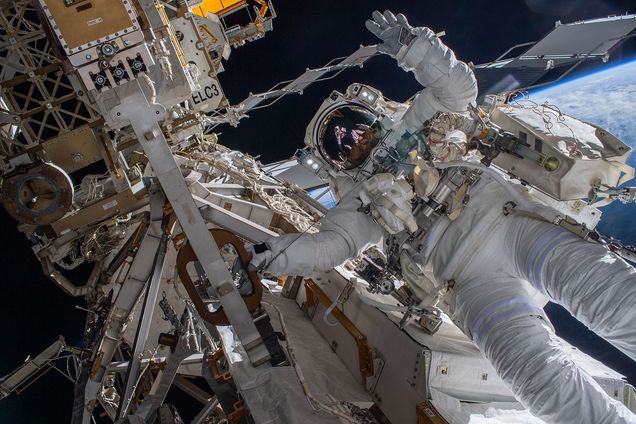Whether they are on the International Space Station, or on a manned flight, if an astronaut dies in space, what would his colleagues do with the body?

Whether they are on the International Space Station, or on a manned flight, if an astronaut dies in space, what would his colleagues do with the body?

Well this is a complicated matter. As far as I know there is no clear protocol as to what has to be done in the event of death.
Astronauts have an exercise they call "Death Sim", where they simulate the death of one of their colleagues and then proceed to tackle the problem and decide on what to do, however they don't seem to have a clear guide to follow, it comes down to what are the best options they have : do they keep the body in a space suit and suffer through the smell? should they send it towards earth to burn on re-entry?
On the ISS astronauts stay for about 6 months, however they pass through very extensive medical examinations before they decide on allowing them to go up there, which would reduce the risk of having a dead astronaut, however it doesn't prevent it.
There is one crazy idea which consists of putting the body in a space bag and letting it freeze in the extremely low temperatures of outer space, and then vibrate it until it shatters to dust, that way the dust can be brought back to earth.
One idea that comes to mind is that the body could just be dumped to float in outer space, however this goes against the United Nations treaty in the point where the body can become dangerous and might collide & cause damage to other spacecrafts & satellites, or might cause a harmful contamination if it lands on another celestial body. You can check the treaty introduction here:
https://www.unoosa.org/oosa/en/ourwork/spacelaw/treaties/introouterspacetreaty.html
Regarding manned flights let's say to Mars for example, the problem still remains, and even on the surface of Mars, what to do with the body?
I'm not sure if I'm up to date with the protocols regarding this issue now that we're getting closer to a new trip to the Moon, and a trip to Mars, however this still remains an important subject for the future
it looks like you did your research sir...
What do you mean by "might cause a harmful contamination if it lands on another celestial body" ??
It's one of the points mentioned in the treaty, we must not destroy or harm the celestial bodies. The human remains and the bacteria living in it might spread or harm the ecosystem or any kind of primordial life form (if any exists of course, we have yet to find anything)